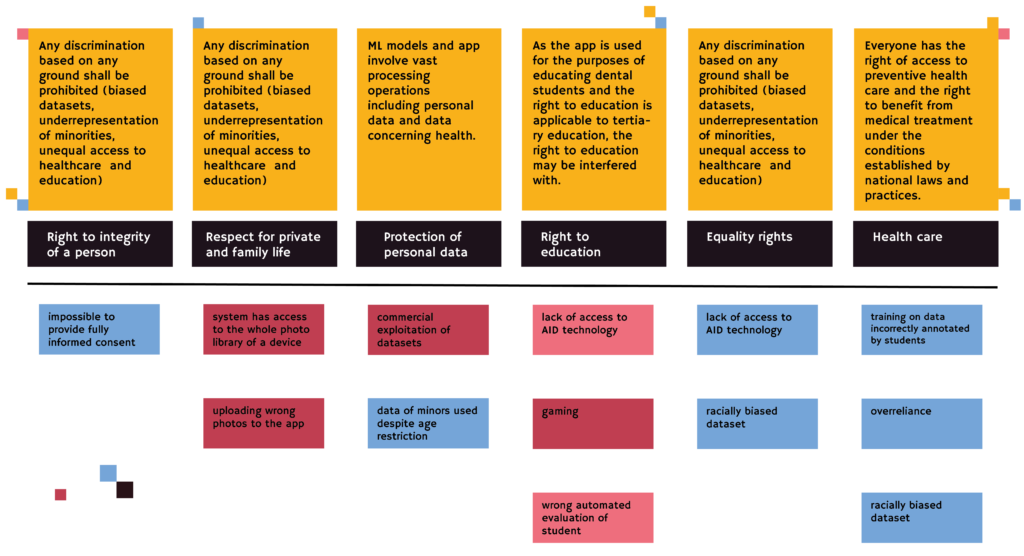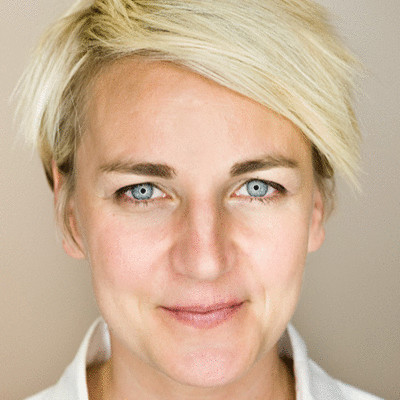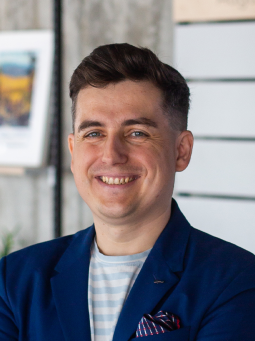AI Dental: responsible innovation in healthcare
AI is quickly becoming an integral part of modern healthcare thanks to many innovative startups such as AID. Through our cooperation, we are trying to add a layer of trustworthiness to their product called AI:Dental. AI:Dental is both a tool for dental professionals and an app for students for educational purposes.
With the noble goal of improving healthcare comes responsibility connected to data privacy, accuracy and human rights. Therefore it is crucial to identify core ethical and societal risks in these areas and proactively integrate mitigation strategies to create an even more safe and accurate product.
Together we identified stakeholder groups directly and indirectly affected by the system in order to find how to best communicate the ways in which AI:Dental works to ensure their trust and compliance. We also discussed possible ethical issues related to building an inclusive dataset while simultaneously ensuring patient’s understanding and consent.
By conducting these assessments, negative impacts can be minimized and trustworthiness of using AI in healthcare increased. However, such assessment is not a one-off action and, as always, we recommend being vigilant not only during the whole development stage but also think of risks and their consequences in the later stages.
We understand that AI can bring significant improvements to dental health care and education, serving greatly to patients as well as to dental professionals. We also believe that while collecting the data – AID can co-create high standards in how to explain to patients what is going to happen, so that the consent is not just legal, but also real. We appreciate KInIT support on this ethical journey. Our team needs to be highly calibrated through sensitivity training for privacy issues, as we want to help set up a responsible landscape for AI use in health care.
Lucia Pašková
Co-founder & Interim CEO, AID
Project team
Juraj Podroužek
Lead and Researcher
Matúš Mesarčík
Ethics and Law Specialist
Natália Slosiarová
Research Intern
If AI in dental care is trained on biased data, it can lead to incorrect diagnoses and treatment planning, posing critical concerns for patient health. Our platform provides unbiased datasets to improve patient care and advance the field of dentistry through practical, user-friendly learning for universities, dental clinics, and AI models.
Peter Jurkáček
CTO, AID





